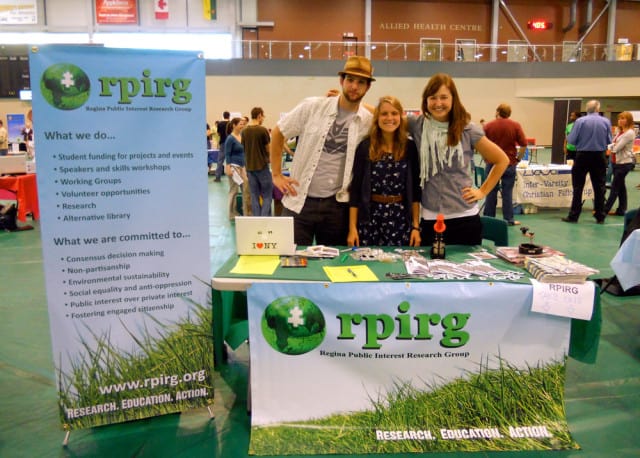
The Regina PIRG has been supportive of the U of S students who are working to getting their own PIRG here on campus.
Two years ago a proposed social justice centre that would have cost the University of Saskatchewan Students’ Union $30,000 per year was struck down by University Students’ Council.
Now a group of students have joined together to gauge the prospect of starting a public interest research group, or PIRG.
PIRGs, similar to social justice centres, are resource hubs that help students research and work toward positive change on social, environmental and economic issues. Unlike social justice centres, PIRGs are independently funded and run by students, separate from the student union or university.
Grace Schenher, a member of Students for Public Interest Research, first heard about PIRGs from a friend who was involved in one at the University of Regina.
“The great thing about them is that they operate under that really broad umbrella of social, environmental and economic justice but they are unique to the campus” they operate on, Schenher said. “Whatever students here are interested in, that’s what they would do.”
The Regina PIRG, which has been supporting SPIR at the U of S, held an “Edible Campus” campaign last year in which it set up three community gardens on campus.
Meanwhile, PIRGs in Vancouver have done studies on the harassment and unfair ticketing of people who live on the street.
Schenher said that there are many students at the U of S who are involved in the kinds of groups and activities that a PIRG encompasses, but there isn’t a location on campus for these students to meet regularly.
“When I first started coming to this university, I thought that there wasn’t a lot of students on this campus who were engaged,” Schenher said, “But I was completely wrong. There are. There just isn’t a place for them to go to connect with other people.”
Native studies professor Priscilla Settee says students would benefit from a PIRG because of the critical thinking and leadership it will bring to campus.
“The fact that it is being initiated and led by young people, by students, is very exciting because young people are the ones that really are best informed on what needs to be changed.”
Neil Balan, a management and marketing lecturer at the U of S, wrote that he supports the idea of a PIRG on campus because PIRGs recognize research and academic work as acts of freedom for students.
A PIRG “is valuable because it is student-constituted and student-driven, which is a socially just and political practice in and for itself,” Balan wrote.
SPIR promoted PIRGs at the Carnival of Solidarity March 15 and at a panel discussion the group hosted March 19 about social justice on campus.
In 2011, former USSU president Chris Stoicheff proposed a new centre for students — a social justice centre. The centre did not receive the two-thirds majority support it needed from USC to be built.
Since then, the possibility of the USSU establishing a social justice centre has not been a priority at USC.
Schenher hopes there will be enough interest in a PIRG by next spring when she plans to circulate a petition calling for a referendum. Students will vote on whether or not they want a PIRG at the referendum.
“There’s a point where you need to stop raising awareness and start transforming that into tangible things and creating things more concrete,” Schener said. “That’s what a PIRG does.”
—
Photo: Regina Public Interest Research Group
Leave a Reply